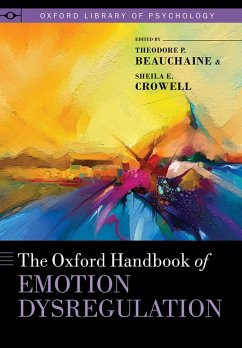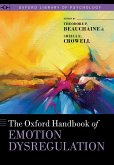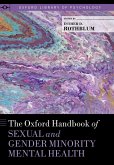Emotion dysregulation, which is often defined as the inability to modulate strong negative affective states including impulsivity, anger, fear, sadness, and anxiety, is observed in nearly all psychiatric disorders. These include internalizing disorders such as panic disorder and major depression, externalizing disorders such as conduct disorder and antisocial personality disorder, and various others including schizophrenia, autism, and borderline personality disorder. Among many affected individuals, precursors to emotion dysregulation appear early in development, and often predate the emergence of diagnosable psychopathology.
The Oxford Handbook of Emotion Dysregulation brings together experts whose work cuts across levels of analysis, including neurobiological, cognitive, and social, in studying emotion dysregulation. Contributing authors describe how early environmental risk exposures shape emotion dysregulation, how emotion dysregulation manifests in various forms of mental illness, and how emotion dysregulation is most effectively assessed and treated. Conceptualizing emotion dysregulation as a core vulnerability to psychopathology is consistent with modern transdiagnostic approaches to diagnosis and treatment, including the Research Domain Criteria and the Unified Protocol, respectively. This handbook is the first text to assemble a highly accomplished group of authors to address conceptual issues in emotion dysregulation research, define the emotion dysregulation construct across levels of cognition, behavior, and social dynamics, describe cutting edge assessment techniques at neural, psychophysiological, and behavioral levels of analysis, and present contemporary treatment strategies.
Dieser Download kann aus rechtlichen Gründen nur mit Rechnungsadresse in A, B, BG, CY, CZ, D, DK, EW, E, FIN, F, GR, HR, H, IRL, I, LT, L, LR, M, NL, PL, P, R, S, SLO, SK ausgeliefert werden.









